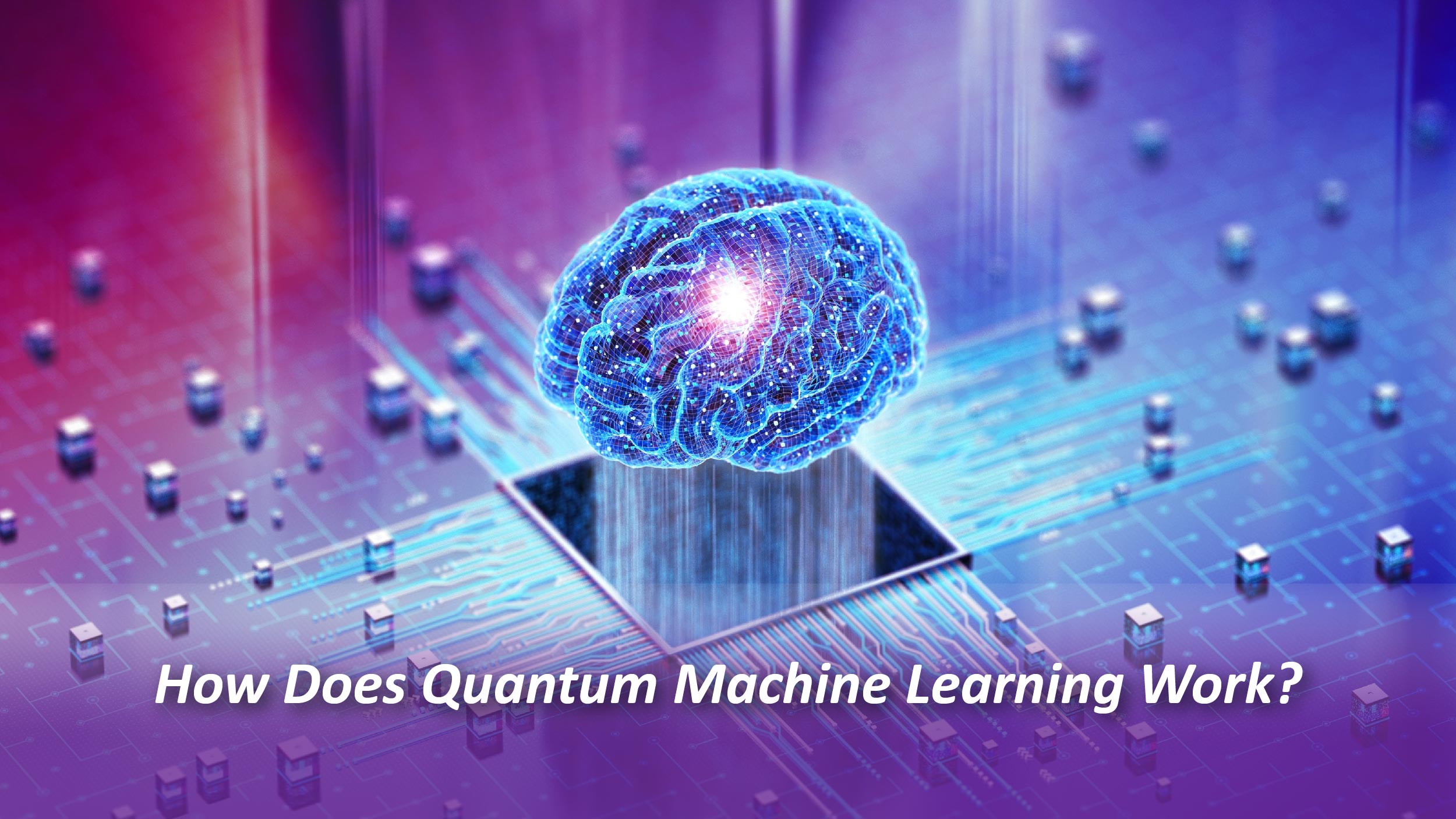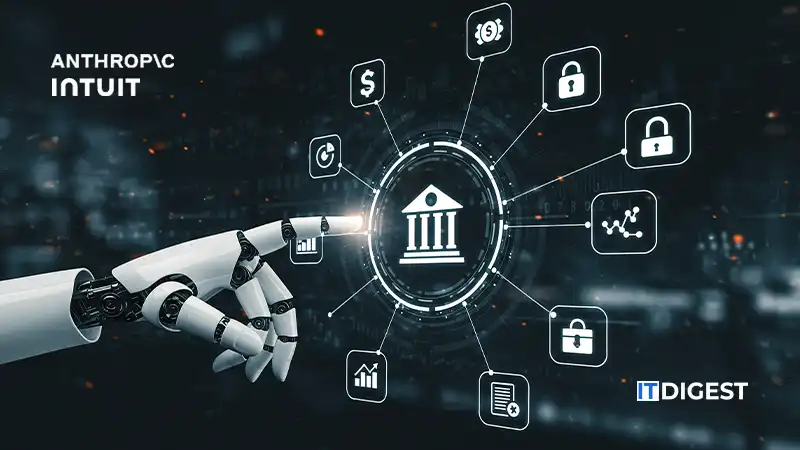Have you ever wondered what happens when the mind-bending principles of quantum mechanics collide head-on with the computational wizardry of machine learning? Here comes quantum machine learning (QML), a groundbreaking fusion that pushes the boundaries of what we thought was possible in the realm of information processing. In this age of relentless technological evolution, QML stands as a beacon at the intersection of quantum physics and artificial intelligence, promising to reshape the landscape of computation and decision-making.
Let’s take a closer look at the key aspects of QML as we move forward in this blog.
What is Quantum Machine Learning?
Quantum Machine Learning (QML) is an emerging field that combines quantum algorithms with machine learning, particularly focusing on quantum-enhanced machine learning. Unlike traditional methods that use classical data analysis, QML leverages qubits and quantum operations to enhance computational speed and data storage in algorithms. This involves hybrid approaches that delegate computationally challenging tasks to a quantum device, allowing for faster execution of complex routines on a quantum computer.
How Does Quantum Machine Learning Work?
 QML is a powerful approach that addresses complex problems by merging principles from both quantum physics and machine learning. It utilizes qubits, specialized units capable of existing in numerous states simultaneously, enabling the execution of multiple calculations concurrently. As a result, QML significantly enhances computational capacity, making computers more robust and efficient.
QML is a powerful approach that addresses complex problems by merging principles from both quantum physics and machine learning. It utilizes qubits, specialized units capable of existing in numerous states simultaneously, enabling the execution of multiple calculations concurrently. As a result, QML significantly enhances computational capacity, making computers more robust and efficient.
Quantum algorithms, such as the quantum support vector machine and quantum neural networks, leverage the capabilities of qubits to perform computations more efficiently than traditional computers. QML exploits unique quantum phenomena, such as superposition and entanglement, to enhance the speed and accuracy of data analysis and pattern recognition.
Also Read: Can Quantum Programming Revolutionize the Future of Computing?
Quantum Machine Learning Applications
The global market value of quantum computing technology is predicted to hit $1 trillion by 2030, with growing applications in prime number factorization, quantum simulation, multivariate problem optimization, and QML as it becomes increasingly mainstream.
●Healthcare
QML accelerates drug discovery by swiftly analyzing vast lists of potential drug combinations, revolutionizing the search for new treatments. It’s a game-changer in medical research, offering the potential for personalized medicine by rapidly decoding complex DNA instructions, leading to more effective disease treatments.
● Finance
Understanding risks is crucial in finance. QML swiftly analyzes market data, identifying risks traditional methods may miss, enabling more informed investment choices. Additionally, it efficiently detects potential fraud by rapidly scanning transactions, enhancing financial security.
● Supply Chain Optimization
Picture a major delivery company faced with the challenge of efficiently dispatching packages to various destinations. Quantum machine learning swiftly solves this problem, ensuring your package reaches you both quickly and affordably. In business, optimizing resources such as time, manpower, and materials is crucial for profitability and growth. QML enables companies to make swift, intelligent decisions to achieve these goals.
● Energy
Quantum machine learning has become increasingly important in today’s society as we strive to optimize energy usage. By analyzing vast amounts of data from various sources such as wind turbines, solar panels, and household appliances, quantum machine learning enables us to enhance energy efficiency.
● Telecommunications
Considering the vast amount of data being transmitted through our smartphones and the internet, the role of QML becomes crucial in guaranteeing fast and secure data delivery.
● National Security
Ensuring national security relies on swift and precise information. QML enhances threat detection and accelerates the decryption of encrypted messages.
Popular Quantum Machine Learning Software in 2024
Here are some of the leading quantum machine learning solutions you can consider in 2024.
1. IBM Quantum Experience
IBM holds a prominent position in the tech industry, and its Quantum Experience platform serves as an ideal setting for individuals fascinated by QML. With its user-friendly interface and diverse range of features, it presents an excellent opportunity to commence or enhance learning in this field.
2. Microsoft Azure Quantum
Azure Quantum by Microsoft is an excellent platform, particularly if you are already utilizing other Microsoft offerings. Azure simplifies the integration process, allowing you to concentrate on learning and creating rather than fixing technical issues.
3. Google Quantum AI
Google Research introduced its Quantum Computing Service in May 2013, which offers a platform for researchers to utilize advanced computational resources that go beyond classical computing. This service grants researchers supervised access to NISQ processors and simulators, facilitating innovative research in quantum computing.
Quantum Computing employs “qubits” instead of classical computer “bits.” Google’s recent experiment with 53 noisy qubits showcased the ability to solve a problem in 200 seconds, a task that would take 10,000 years on the largest classical computer. This heralds the onset of the Noisy Intermediate-Scale Quantum (NISQ) computing era, with the expectation of practical quantum devices featuring tens-to-hundreds of noisy qubits in the near future.
Final Thoughts
The fusion of quantum mechanics and machine learning has given rise to the captivating field of quantum machine learning (QML). As we navigate the frontiers of this cutting-edge discipline, it becomes evident that QML holds the potential to revolutionize how we process information, solve complex problems, and enhance the capabilities of artificial intelligence.
While challenges and limitations persist, the ongoing research and advancements in quantum machine learning promise a future where we can harness the inherent quantum nature of particles to unlock new dimensions in data analysis and decision-making.


































